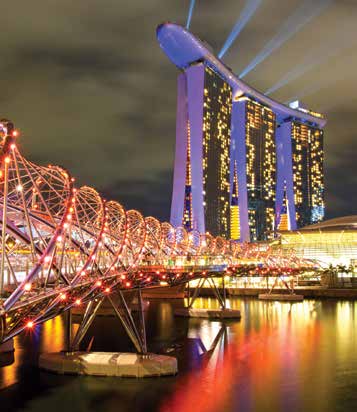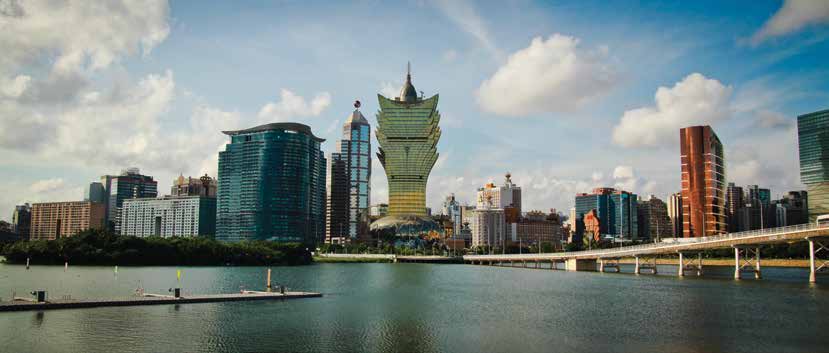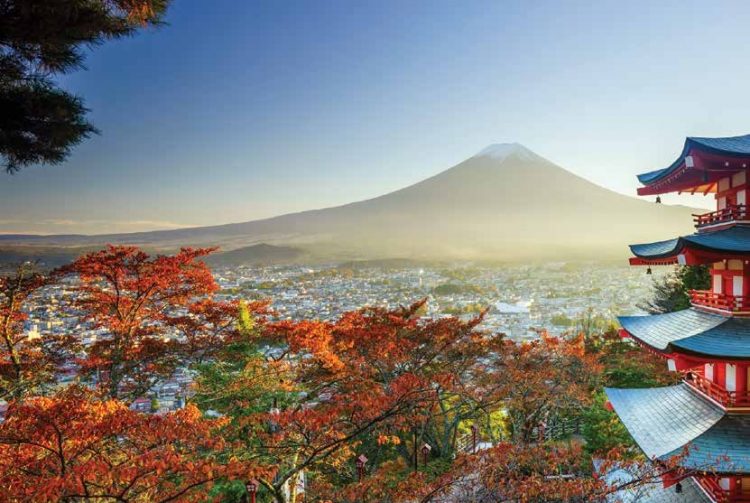By Dr Glenn McCartney and Dr Andy Nazarechuk
In the first of a five part series on the development of Japanese integrated resorts, casino and integrated resort experts Dr Glen McCartney and Dr Andy Nazarechuk examine the lessons learnt from similar ventures in Las Vegas, Macau and Singapore.
Gaming industry operators in Las Vegas, Macau and Singapore have all endured important learning curves and made costly mistakes such as providing the wrong product or services that, at the time, they believed to be good ideas. In fact, many of those ideas were presented to their patrons based on a poor understanding of cultural nuances. This led to copycat marketing and product development across cultural markets, as was evident in Macau when presenting gaming and non-gaming to the mainland Chinese market, be it mass or VIP/premium mass.
Many vital decisions, even down to human resource strategies concerning administrative teams, frontline staffing and the appointment of senior executives to leadership roles have seen their fair share of missteps. Getting it right the first time has obviously seen quicker rewards. One IR model does not fit all and there will be debate on whether a Japanese IR should be created in the image of Marina Bay Sands, Resorts World Sentosa or Galaxy Macau.
There will be heightened, maybe unrealistic expectations for Japanese integrated resorts to deliver on economic and tourism rejuvenation promises. From architecture and construction to fitting out, Japan’s IRs will be considerably more expensive than Macau’s. Therefore, it is vital that operators do their homework and learn from the successes and failures of past and present IRs to ensure that, when the doors finally swing open in Japan, a new IR benchmark will be set.
The Japanese Integrated Resort – what should it look like?
The discussion on legalizing casinos in Japan has been in the works for decades, but soon an IR will become a reality in the land of the rising sun. The bigger question now is – what will Japan’s first IR look like? How will it maximize visitor flow across the property? What type of entertainment will it offer and what amenities will it need to provide to its customers?
In the early days of Las Vegas, themed resorts were the magnet to attract both visitors and locals. Caesars Palace is a great example of a themed resort. However, themed resorts in Las Vegas are now out of style and new modern, high tech facilities are the vogue.
Today’s integrated resorts are similar – providing a hotel, nice restaurants, retail, events, entertainment and of course a casino, all aligned with other recognizable iconic brands if possible. Apart from Genting, Malaysia in the 1980s, Asia had limited insight into which IR model worked best, but the past decade has certainly provided important lessons to focus on, from the potential audience to key design features.
The Japanese market ranges from the highly traditional to the tech savvy, but we also know the Japanese will attract regional markets from Korea, Taiwan and mainland China and from around the world. The history and appeal of the Japanese culture, be it food and drink, music or the surrounding environment are highly appealing and the Japanese IR will attract regional audiences. Japanese retail brands and luxury goods make this an excellent asset as an IR strategy and allow premier mall development.
Politics aside (although an issue to consider and watch), Chinese visitation to Japan continues to increase, representing over 25% of inbound visitors to Japan in 2016 with over six million visitors and they are the biggest inbound spenders. Shopping is a key motive.

Marina Bay Sands
The Japanese outbound market needs reflection. Small numbers of Japanese premium mass players travel to regional casinos providing a lack of sufficient insight to the actual pent-up demand of a local domestic market who only need to travel within the country through a localized host system. The IR’s marketing teams and messaging will obviously be split to deal with these domestic, regional and international visitor markets. There will be differences for those wishing to have a real “Japanese experience” compared to a larger host audience who may have additional expectations from their new Japanese IR.
It all starts with government policy and direction in the bid document. There is speculation on having IRs in popular cities, a feasible consideration with a level of infrastructure in place and experience on the impacts of massive development and tourism arrivals. When Japan is ready to start the process of selecting builders and operators for their casino operations, the questions the public will want to know are, “How will the operators/builders be selected?” and, “What qualifications will be required for those selected?”
The challenge with any new jurisdiction seeking to open resorts that feature casinos is that they will attract a wide group of investors and those wishing to operate. The quality of submissions and backgrounds will differ. Central to Singapore’s casino license criteria was to continue advancing Singapore’s already diverse leisure and business tourism mix. This point represented 40% of the awarding criteria. The destination certainly did not wish to backtrack on this.
The same did not apply to Macau some years previously. Macau’s six judging criteria didn’t specifically mention tourism development but a focus on bringing international standards and management to Macau’s casino industry, given the turmoil and triad turf wars that had endured in the years leading up to the handover in 1999.

Macau is the benchmark when it comes to Asia’s gaming cities
From liberalization until today, Macau became increasingly reliant on gaming revenues. The Singapore authorities have constantly delivered policy and actions to ensure Singapore continues to have a diverse tourism mix, although are still challenged to minimize gambling within the Singapore community.
Japan will need to not only consider bid criteria and weighting, but ensure ongoing policy directs and produces a healthy tourism mix. Multiple bids were received for Macau and Singapore’s limited casino licenses. Tax regime aside, which must be favorably based on estimated ROI and ongoing EBITDA estimations, Japan should receive more bids given the track record of Asian integrated resorts, its own economy and the number of Japanese strategic partnerships boasting insight into construction and gambling habits such as pachinko. These partnerships of experience and local market insight will be crucial.
Controlling share will obviously be an issue for the partnerships to agree on. Amongst the beauty pageant of IR pitches, promises and commitments, from the outset the collaboration between the awarded casino operators and authorities will be important. Policy opaqueness has been at times detrimental to the industry with issues of high profile corruption cases, arrests and governments who grapple with high inflation and infrastructure in keeping pace with IR development.
Las Vegas has had a long history of resort, entertainment and casino development and has reinvented itself several times. Macau has benefited from Las Vegas’ experience by developing its own version of the “Strip.” Singapore has also watched and learned from gaming jurisdictions around the world, incorporating some of those policies and ultimately developing two very different IRs. Japan can learn too and, with the careful selection of operators, bring concepts that will create an iconic IR industry for Japan.
In our next article, we will examine the IR design, size and gaming to non-gaming mix of a Japanese IR. Pachinko remains a must but what other gaming products will interest and what portfolio of nongaming should be included, be it accommodation, retail, events, conventions, restaurant or entertainment offerings?

Dr Glenn McCartney has been working, consulting and advising government agencies and major casino operators on Macau’s casino and hospitality industry for over 20 years. He increasingly provides insight and analysis to other casino jurisdictions given the lessons of Macau. He is an Associate Professor in Hospitality & Gaming Management at the University of Macau.

For over 30 years Dr Andy Nazarechuk has held executive positions, consulted and been involved in major casino resort development in Las Vegas, Korea, Singapore, Macau and other international destinations. As a leader in the hospitality and tourism industry, his unique combination of experience and education allows him to provide well-rounded strategic advice.
































